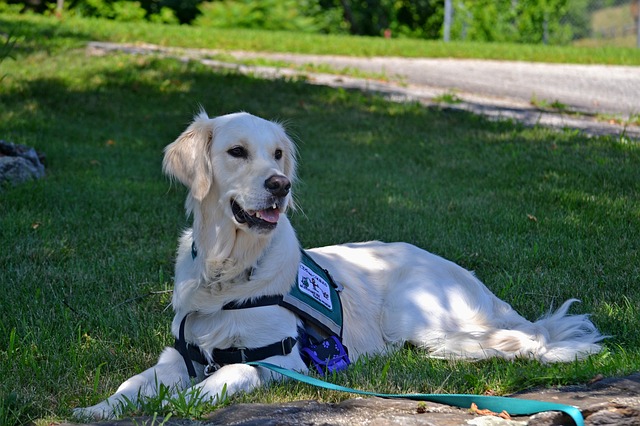Dogs have been used as guardians by humans for as long as time has been recorded. These pups have provided a means of defense and protective “buddy” to human beings. Most recently, these dogs have been trained to be service animals for those who suffer from a health condition that makes them extra susceptible to seizures.
Diabetes is a health condition that has become a prevalent disease. There is a massive surge in the number of people testing positive for diabetes every year, which calls for a drastic solution. There is a variety of tools and tracking devices to help those with the condition. Among those tools is the diabetic service dog.
Service Dog helps in monitoring and alerting a diabetic patient
Service dogs can help individuals compete against diabetes and its related health issues. The canine trained to respond to diabetes-related needs such as blood glucose monitoring, alerting for hypoglycemia, and reminding at risky times of insulin and caloric intake for dieters and patients on dialysis. These specially trained animals can provide independence while still acting as a security blanket at critical moments in an individual’s day.
Help to reduce blood glucose levels
A diabetic service dog is an animal with specific training to help people living with diabetes. They can help you with several different tasks. Their role is also to warn their owners before anything dangerous happens, such as when their insulin drops too low (hypoglycemia), when their blood sugar drops, or when they’re having low or high blood sugar reactions.
Detect low blood sugar levels or fluctuations
Dysfunction in the autonomic nervous system causes a person to be unaware of how much carbohydrate is absorbed from the digestive tract. A diabetic service dog monitors this process by detecting signs of low blood sugar levels or fluctuations in cardiovascular function. If one of these conditions is reached, it will contact the owner and help get them out of a situation before they need medical assistance.
Assist in changing lifestyle for people with diabetes
Diabetic service dogs offer assistance to change lifestyle for diabetic patients, such as trouble with self-monitoring, meal prep, and management systems. The role of a diabetic service dog is very vital. The “Type 1” service dog is specifically geared toward diabetic needs. The service’s main duties are to remind its handler to take multiple daily blood sugar levels and respond appropriately when the levels ebb or flow out of the desired range. Since a diabetic service dog will be with a person throughout the day, they can alert their owner to a few key changes in blood sugar levels.
Smell a change in the smell of perspiration
A service dog can smell a change in the smell of perspiration or notice differences in your urine. If your dog notices that there’s a drop in your blood sugar, they will bark to let you know that something might happen soon.
Conclusion
As you can imagine, the role of a service dog in someone with diabetes is incredibly important and benefits many different areas in a person’s daily life. I would highly recommend that everyone with diabetes take the time to learn more about their options for living with diabetes, including having a Diabetic service dog.
If you would like to find out about earning cash for your unwanted, unused and boxed test strips, complete our online quote form today.
If you have extra, unopened and unused boxes of diabetic test strips – whether you have switched brands, no longer need to test or test less frequently, or have a loved one who has passed away – don’t let them gather dust until they’ve expired and end up in the trash. We’re the best place to sell diabetic test strips online, and if you want to sell your test strips, we’re here to make the process easy and enjoyable!
Visit us at Sell Your Test Strips and get your free quote today!

